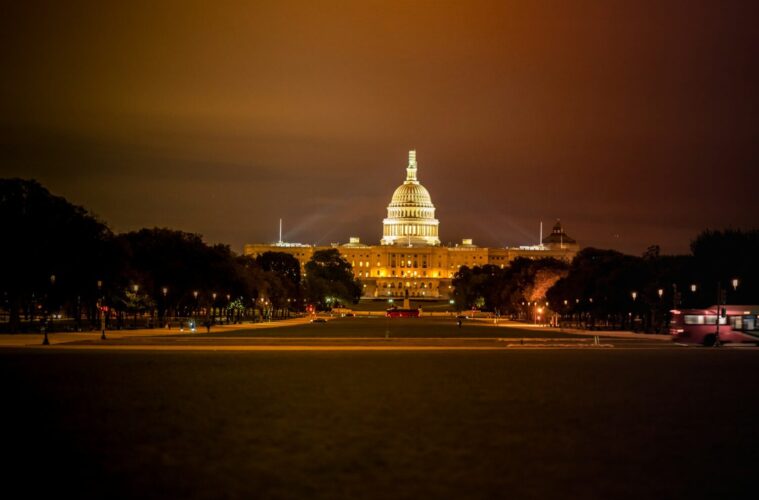Congressman Earl Blumenauer is calling for more details into the Drug Enforcement Administration’s (DEA) review and rescheduling process after initially leading the bipartisan letter that confirmed the review was ongoing in October.
Blumenauer started the second letter to the DEA by noting he was thankful for their response in December. He also pressed that clear and proactive communications will be critical as the scheduling review moves forward before calling the review itself key to ending the federal government’s failed and discriminatory war on cannabis.
Since hearing back from the DEA in December, The Department of Health and Human Services (HHS) recommendation the DEA reschedule cannabis to Schedule III has been leaked. Blumenauer noted that would not be enough to address prohibition’s wrongs or close the gap between state and federal policy.
Blumenauer listed his other main concerns in the letter as:
- What is DEA’s planned deadline to publish its draft rule on the scheduling of marijuana
for public comment? - What is the standard timeline for DEA’s drug scheduling reviews?
- On what date did DEA begin its review following receipt of HHS’s findings and
recommendation on marijuana scheduling? - How is DEA ensuring the agency’s review incorporates the status of marijuana under
state laws and regulations in its scheduling decision? - How will DEA proactively communicate developments and receive feedback from
congressional partners as the review proceeds?
He reached out to Blumenauer to chat about the letter. He now has 46 weeks before he retires from Congress. He has worked on cannabis issues for 50 years since he was in the Oregon legislature.
Our chat would start with the fact he could see a lot of action in the next 46 weeks.
“You know, it is really exciting. And you alluded to the fact that I’ve been working on the cannabis issue, literally for over 50 years,” Blumenauer told L.A. Weekly. “I was in the Oregon legislature when we were the first state to decriminalize cannabis in 1973. And in fact, I was part of the debate that would have fully legalized adult use, which I think was the first time that vote ever took place in a legislative body and in the years that have followed, we’ve watched dramatic progress taking place.
When he first got in the mix, Americans rejected the idea of legalization nearly two to one. Blumenauer was excited to point out that these days even a majority of Republicans support full legalization.
“It’s overwhelming support and that’s very gratifying,” Blumenauer said. “And of course, watching what’s happened in state after state around the country, where we’ve been working directly with voters, we’ve had tremendous success.”
Our conversation on the letter would start with how aware he was of the HHS recommendation letter sent to the DEA. He replied his team had heard rumblings they were moving in their direction. He’s found the language President Joe Biden has been using over the last year refreshing.
While Blumenauer was thankful for Biden’s newfound support on the issue, it wasn’t hard for him to articulate the impact it’s already had on his path to the White House ahead of another election.
“He signaled a willingness to look at rescheduling and I think that willingness to look at rescheduling was a pretty powerful indication that they were moving in this direction. I had been working politically with the Biden administration, with their policy people, with anybody who will listen, saying that this is something that the President needs to do. He’s been open, he’s been helpful, but there’s more,” Blumenauer said. “I make the point that if it weren’t for cannabis, he would not have carried Arizona by 30,000 votes. The overwhelming support of young voters in Arizona carried that state for him. In fact, if it weren’t for cannabis, we would not have democratic control of the U.S. Senate.”
Blumenauer has spent a career sending his concerns on cannabis policy to the DEA. We asked if it feels a little more receptive these days than in decades past. He believes there is now a quiet acceptance in the DEA given we’re 38 states into cannabis reform and the sky has not fallen.
Blumenauer believes the clock is ticking toward a full descheduling; he hopes the legislative branch will do it themselves this year. Regardless, he is convinced federal reforms are coming,
“I’ve been involved with every state-level legalization effort, worked with advocates I’ve given, I don’t know, 1,000 interviews and you can just sense that people are aware that this is actually the right thing to do,” Blumenauer said. “It’s inevitable that the federal government is going to realign its priorities.”
Blumenauer again noted this was happening in both red and blue states. He argued real reform has a momentum that’s taking place. He believes a big part of it is the case that advocates make for SAFE Banking, which has passed the House seven times. He called it a matter of public safety.
“People are being robbed and killed because they don’t have access to legalized banking services,” Blumenauer said. “It adds expenses to businesses that are struggling. It’s really an issue that is past its time and the notion that we still have people making multiple $1,000 bank deposits with shopping bags full of $20 bills, is just outrageous.”
Advertising disclosure: We may receive compensation for some of the links in our stories. Thank you for supporting LA Weekly and our advertisers.

